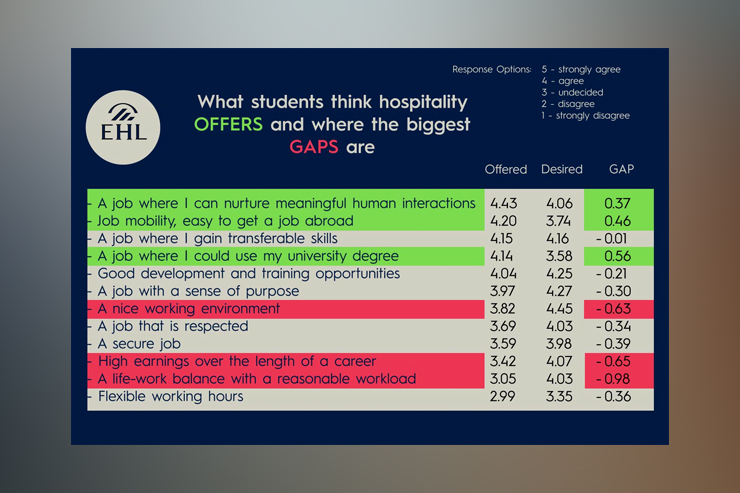Addressing the Chronic Worker Shortage in the Hospitality Industry: Insights from Hospitality Students

The hospitality industry, often hailed as the people business, is grappling with a chronic labor shortage and high employee turnover. While this issue is multifaceted, exacerbated by factors such as digitalization, shifting customer needs, demographics, and the impact of the COVID-19 pandemic, it’s essential to understand why the industry is struggling to attract and retain talent.
To tackle this challenge, one must examine both the supply side and demand side of the labor market. In this context, the focus is on the supply side, particularly on what motivates or demotivates hospitality students when considering careers in the industry.
What Attracts Hospitality Students to the Industry?
Traditionally, hospitality students have been drawn to the industry due to factors like:
- Interesting Work: The industry’s dynamic and diverse nature makes it appealing.
- Opportunities for Advancement: Students see potential for career growth.
- Secure Future: Job stability and demand for the industry.
- Good Salary: The expectation of competitive compensation.
- Opportunities to Serve the Community: Many find purpose in the service-oriented nature of hospitality.
- Social Prestige: Some segments of the industry offer status and recognition.
Factors that Raise Concerns Among Hospitality Students
Despite the allure of the industry, certain negative perceptions deter students from pursuing hospitality careers:
- Work-Life Balance: Hospitality jobs often entail irregular hours and long shifts.
- Low Compensation: Entry-level positions may offer modest pay.
- Low-Skilled Positions: Some view these roles as requiring limited skills.
- Long Working Hours: Extended hours are common in the industry.
- High Stress Levels: Pressure in fast-paced environments.
- Poor Working Conditions: Concerns about workplace quality.
- Seasonality: Certain roles may have variable demand.
- Limited Promotion Opportunities: Worries about career progression.
- A Changing Workforce: The industry may struggle to adapt to shifting demographics.
- Limited Training: Inadequate investment in employee development.
- Low Social Status: Perceptions of status may vary.
- Unqualified Leaders: Questions about leadership competence.
- Low Job Satisfaction: Concerns about overall work happiness.
Insights from a Recent Survey of Hospitality Students
A survey of undergraduate and postgraduate hospitality students revealed their priorities and perceptions of industry jobs. Notably, elements like a pleasant working environment, a sense of purpose, and training and development opportunities were highly desirable. However, job security, job mobility, and flexible working hours ranked lower on their list of priorities.
Furthermore, the survey assessed the gap between what students seek and what they believe the industry offers. The results highlighted areas where the industry either over-delivers (positive gaps) or underdelivers (negative gaps) in meeting students’ expectations.
Positive Gaps:
- Human Interaction: Hospitality jobs are seen as offering ample opportunities for interaction.
- Job Mobility: Students perceive the industry as providing mobility.
- The benefit of a University Degree: A degree is valued in the hospitality environment.
Negative Gaps:
- Work-Life Balance: The industry is perceived as lacking in this aspect.
- Reasonable Workloads: Students desire reasonable workloads over their careers.
- High Earnings over a Career: There’s a gap in long-term earning expectations.
- Pleasant Working Environment: Students seek a more favorable work environment.
Taking Action
The chronic labor shortage in the hospitality industry has been exacerbated by the pandemic, making it even more critical for key stakeholders to collaborate on solutions. To address this issue, several steps can be taken:
- Realistic Expectations: Universities and schools should ensure students have realistic expectations about entry-level jobs and industry positions.
- Government Involvement: Governments can facilitate connections between graduates and recruiters.
- Industry Collaboration: Working closely with the industry is essential for effective internship onboarding and shaping future curricula for hospitality students.
In summary, the hospitality industry’s labor shortage is a multifaceted issue that requires collective efforts and a strategic approach. By aligning students’ expectations, industry needs, and educational institutions’ offerings, stakeholders can make significant progress in addressing this chronic problem and ensuring the industry’s growth and resilience.





